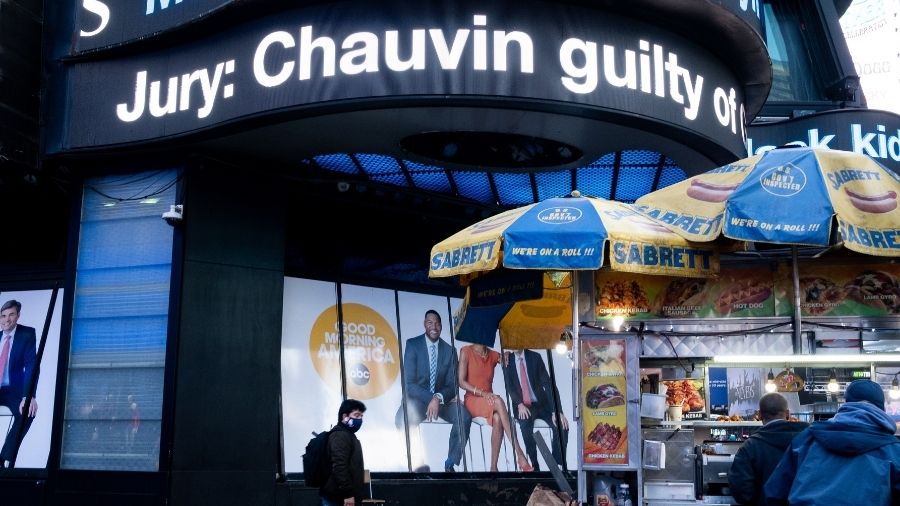Sir — While excesses are to be frowned upon at a time when the nation is almost collapsing under the weight of the pandemic, it was heartwarming to read about a man in Rajasthan who hired a helicopter to bring his newborn daughter — the first girl child in the family in 35 years — home from his wife’s parents’ place. This is a remarkable step in a state — indeed, a whole nation — that overwhelmingly prefers male children, so much so that female infanticide and foeticide are serious concerns. One hopes that this man’s obvious joy at having had a daughter is seen as an example to follow in our patriarchal country.
Ronit Sen,
Calcutta
Step forward
Sir — In a historic verdict, a judge found the former Minneapolis police officer, Derek Chauvin, guilty of murdering an unarmed black American man, George Floyd, in an incident last May that ignited a storm of protests against police brutality and a global outpouring of anger at the racial injustices entrenched in the United States of America (“US can breathe after cop who kneed Floyd to death is convicted of murder”, April 22). Chauvin has been convicted of second-degree and third-degree murder and manslaughter for a nine-minute-long encounter during which he knelt on Floyd’s neck on the roadside until the latter died of asphyxiation. Floyd’s final words, “I can’t breathe”, became the clarion call for a massive wave of street protests across the US.
At the time, the then president, Donald Trump, blamed the “radical left” for the protests and threatened to send in the National Guard. On the other hand, Joe Biden, who was the front runner of the presidential race at that time, went to Houston to meet Floyd’s relatives. His words of encouragement gave many Americans hope that if he became president, there would be a real possibility of reform in law enforcement and criminal justice that could curb violence against racial minorities.
The Chauvin case has lessons for India, which is no stranger to police excesses and prejudice. Custodial deaths, fake encounters and mob lynchings demonstrate a blatant disregard for the law. The frequent cases of vigilante justice point to the dwindling trust in the judicial system. The police-politician-criminal nexus is taking its toll on the dispensation of justice. Earnest introspection followed by course correction is the need of the hour.
Khokan Das,
Calcutta
Sir — On an era-defining day for the US, Derek Chauvin was found guilty of the murder of George Floyd. The murder highlighted the simmering racial tensions in the country and triggered mass protests under the Black Lives Matter banner.
But the case bears an important takeaway for India. Floyd was killed in May 2020, and was convicted in less than a year. The US’s justice delivery system worked fast. The fact that the last moments of Floyd’s life were caught on camera certainly contributed to the urgency with which the case was treated. But the fact remains that justice was delivered quickly. This is a prerequisite for building the people’s trust in a system. In contrast, the Indian judicial system has a mind-boggling backlog of cases.
Another relevant aspect of the trial was the nature of the police response. Floyd was picked up following an allegation that he used a counterfeit $20 note to buy cigarettes. The sequence of events led to Chauvin kneeling on Floyd’s neck for over nine minutes, unmindful of the victim repeatedly saying “I can’t breathe”. The prosecution’s witnesses included a police chief who observed that Chauvin violated protocol. India has often seen custodial deaths and other police excesses. Like in the US, it’s hard to get a conviction of police officials who violate norms. We hope that the Chauvin trial will catalyse some change here too and that rogue police officials will be held accountable.
N. Sadhasiva Reddy,
Bangalore











